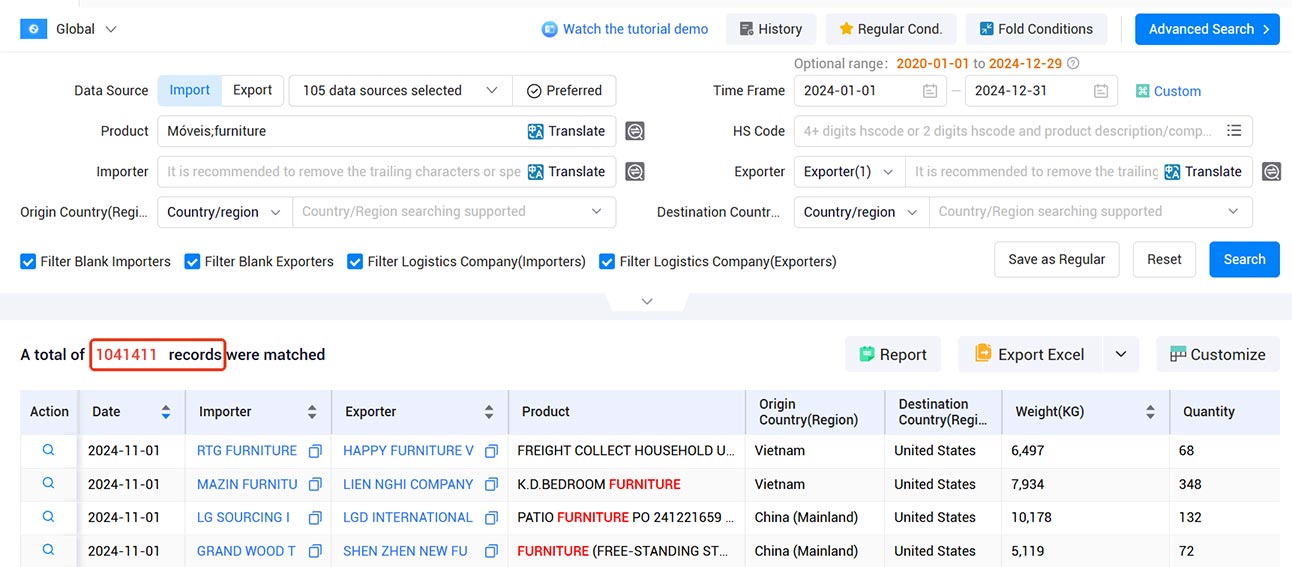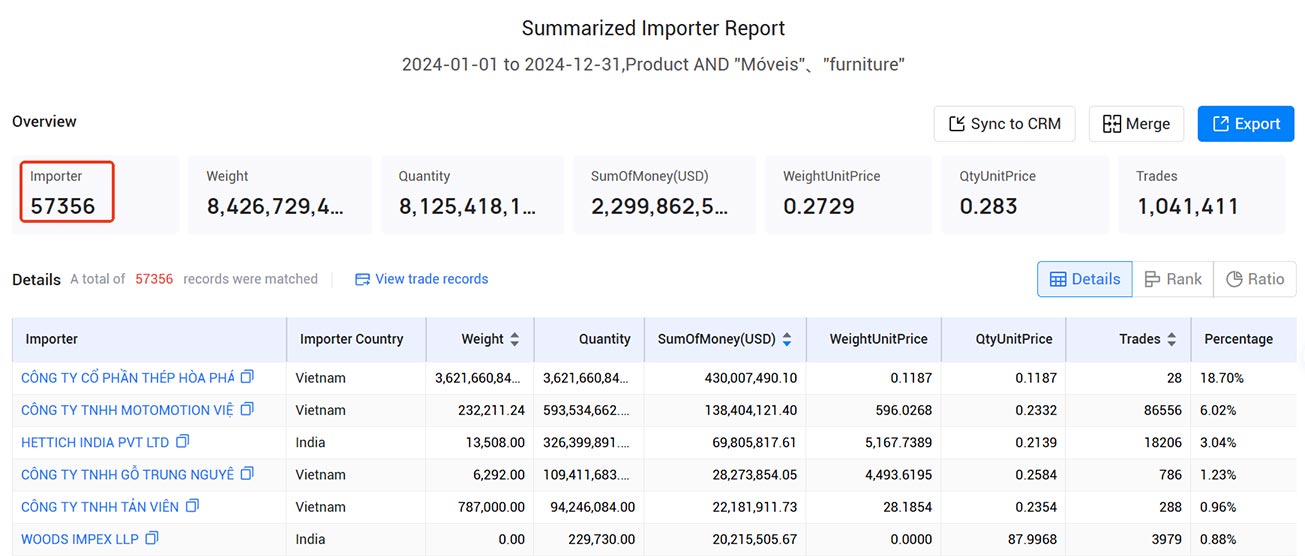 Trade Data Provider
Trade Data Provider
 06-11-2024
06-11-2024
In recent years, with the rapid growth of cross-border e-commerce and foreign trade, B2B platforms have gradually become an important channel for foreign trade companies to acquire clients. Currently, Alibaba is one of the largest B2B platforms in the world, along with others such as Made-in-China, Global Sources, and nearly a hundred similar B2B platforms globally. However, for many foreign trade salespeople, simply relying on these platforms does not guarantee easy access to high-quality clients. Many salespeople spend a lot of time and money on these platforms, often with little to show for it. Behind this, there are some hidden patterns and operational truths about the platforms that foreign trade newcomers may not be aware of.

The Dilemma of Foreign Trade Salespeople: Platforms Are Not All-Powerful
Many foreign trade salespeople, especially those who do not attend trade shows or purchase paid platform services, tend to register on multiple B2B platforms in an attempt to cast a wide net and acquire clients. These salespeople may spend up to 16 hours a day posting information and researching clients on different platforms. However, after six months or even longer of trial and error, they may barely figure out how to acquire inquiries efficiently through these platforms.
In this process, the platform's natural ranking and exposure mechanism become crucial. Unfortunately, many platform marketers do not truly understand these mechanisms, and although platform technicians are aware of the rules, they usually do not share them. This is because once these rules are widely understood, it could affect the platform's revenue model.
Misleading Platform Mindset: Ignoring the Core Mechanisms of the Platform
Many foreign trade companies, when using B2B platforms, are often misled by platform promoters, spokespersons, or so-called expert trainers who claim that just investing large amounts of money will yield substantial returns. In reality, platforms are merely a medium, and their operating mechanism is not complex. The core rules boil down to two key aspects.
The first is the platform's natural ranking algorithm. This rule is beyond the control of the platform itself and is similar to traditional SEO optimization. Foreign trade salespeople who understand this ranking mechanism can post information regularly and use external channels to attract potential customers. This method does not require additional advertising investment. Once the ranking rules are mastered, foreign trade salespeople can effectively gain inquiries.
The second factor is human intervention, where vendors can pay for promotional packages or activities to push their product information to prominent positions on the platform, increasing visibility. These promotional activities are often based on big data, meaning that the more money invested, the more the platform will prioritize that vendor's products. However, this artificial promotion approach typically leads to high customer acquisition costs, which, despite bringing in customers, can significantly shrink profits due to the high costs and may even be further squeezed by competitors' low-price strategies.
Mastering the Rules and Reducing Ineffective Investments
Understanding and mastering the platform's natural ranking rules and paid promotion strategies are key to acquiring clients through these platforms. Many "savvy" foreign trade companies, through an annual investment of less than 40,000 yuan on a basic platform account, can generate millions in annual revenue. On the other hand, companies that do not understand the platform's mechanisms and blindly invest large amounts of money may spend hundreds of thousands or even millions each year with little return.
Especially for newcomers in foreign trade, B2B platforms are not always the best client acquisition channels. The competition on these platforms is fierce, customer acquisition costs are high, and without mastering the core techniques, newcomers can easily lose direction in the intense market competition, spending a lot of time and energy but not achieving adequate returns.
The Best Choice for Newcomers in Foreign Trade: Shipment Data
Compared to B2B platforms, shipment data is a better-suited client acquisition channel for newcomers in foreign trade. Shipment data provides precise information about importers and exporters, including transaction volume, transaction value, product types, etc. This data helps foreign trade companies understand global market demand more intuitively, analyze competitors' movements, and formulate more targeted market strategies.
>>Use Tendata Shipment Data to Understand Target Markets <<

Through shipment data, foreign trade newcomers can quickly identify potential clients and follow up with effective communication. This not only increases the likelihood of closing deals but also reduces the costs of blindly placing ads and engaging in ineffective promotions. With shipment data, foreign trade newcomers can find the most suitable markets and customers in the shortest amount of time, significantly improving client acquisition efficiency.
>>Use Tendata Shipment Data to Quickly Acquire Clients <<

Conclusion
Overall, while B2B platforms are important tools for foreign trade businesses, they are not always the best choice for every company, especially for newcomers. Understanding the platform's operational rules and making reasonable use of promotional resources is important, but compared to this, shipment data offers foreign trade newcomers a more precise and efficient way to acquire clients. In the foreign trade industry, choosing the right tools and strategies is key to achieving better results with less effort.
Category
Leave Message for Demo Request or Questions


 T-info
T-info T-discovery
T-discovery

 My
Tendata
My
Tendata Market Analysis
Market Analysis Customer
Development
Customer
Development Competitor
Monitoring
Competitor
Monitoring Customer Relationship
Customer Relationship





































































































































